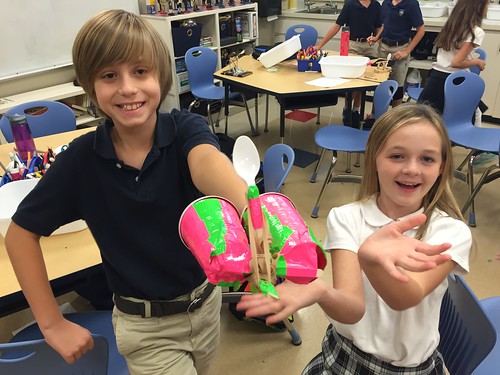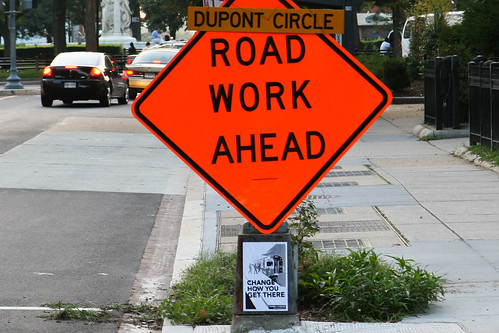I am loving the opportunity to participate in #EdCampVoxer over the holidays this year. On December 23rd I shared the post, “Advice for Teachers Starting with Classroom Blogging,” which came out of the “Let’s explore blogging- writing and reading for professional growth!” group. Today I’d like to share some helpful ideas and questions which came out of the “Making as Learning” group.
A few days ago, Eureka McCormick (@techK5teacher) recommended the book “Make Writing: 5 Teaching Strategies That Turn Writers Workshop Into a Maker Space” by Angela Stockman (@AngelaStockman). I have been very inspired, challenged, and stretched by Angela’s comments and contributions in our #EdCampVoxer “Making as Learning” group, and just ordered her ebook today.
Make Writing: 5 Teaching Strategies That Turn Writers Workshop in2 a Maker Space https://t.co/ZmAnRZdeXb by @AngelaStockman via #EdCampVoxer
— Wesley Fryer, Ph.D. ??? wesfryer.com/after (@wfryer) December 28, 2015
Angela’s challenge to focus on documenting the process of student learning, rather than focus just on the products of student learning, resonated strongly with me. Much of my educational advocacy focuses on helping students and teachers use media to “show what they know,” and this can easily become product focused.
There is value in creating and making specific products, but ultimately deeper learning can result when we are reflective on our process rather than simply focused on a final product.
"Challenge yourself 2focus more on documenting the process of learning, rather than the products of S learning" @AngelaStockman #EdCampVoxer
— Wesley Fryer, Ph.D. ??? wesfryer.com/after (@wfryer) December 28, 2015
This recent post by Angela, “How do we distinguish learning from its products?” delves more into these issues.
I also was very interested by the stories Angela shared about how learning is closely tied to identity, and how her own daughter faced an identity struggle in a makerspace context around writing. Angela cautions us all to be careful about what we tell students they are good at, and also what we might be tempted to tell students “they are not good at.” Words are powerful, and so are conceptions of identity.
"Learning is absolutely tied in with identity" by @angelastockman #EdCampVoxer (be very careful what you tell students they are "good at")
— Wesley Fryer, Ph.D. ??? wesfryer.com/after (@wfryer) December 28, 2015
Last of all, I found the following questions shared by Angela in the #EdCampVoxer discussion to be extremely helpful. Here’s what I wrote down as notes from #EdCampVoxer:
Ask students about “metacognitive moves” they make before, during and after learning.
Questions to ask before learning:
- Where do you anticipate you might struggle today?
- What are you going to do when that happens?
As kids are learning, consider asking:
- How did your thinking change as a result of this experience?
- What assumptions have been upended as a result of your learning today?
- What did you predict would happen, and what has happened that was totally unexpected?
- How did those unexpected experiences shifting your perception of things?
- What is the most important learning that you did today?
- What did you experience today that is worth teaching someone else?
- What are you most proud of that you did, experienced or learned today?
- Which of your struggles has been most essential to your learning?
Some of the most valuable “media products” my students created the past two years were reflective videos in which they discussed their own learning and process of learning. Like others, I sometimes have felt guilty that I haven’t challenged students to do this more often. Frequently, I’ve been antsy to jump into the next unit or topic of study, that I haven’t provided students with the time and encouragement they need to be reflective like this. Despite these shortcomings, we have done some reflections, and it’s a good reminder from #EdCampVoxer today not only about the importance of these reflections… but also that there are many other excellent questions we should consider using next time we take time to reflect on how we’ve grown and changed as a result of our experiences inside and outside the classroom.
If you enjoyed this post and found it useful, subscribe to Wes’ free newsletter. Check out Wes’ video tutorial library, “Playing with Media.” Information about more ways to learn with Dr. Wesley Fryer are available on wesfryer.com/after.
On this day..
- Student Voice, YouTube, & Digital Citizenship: Rachel Fryer on the TEDx Stage – 2016
- Join Our Google Hangout Today: 2014 EdTech Year in Review – 2014
- Comparing Differences in Website Statistics Between CloudFlare and Google Analytics – 2014
- Holiday iPhone and iPod Touch Application Pruning – 2009
- An Oklahoma City to Kansas City Amtrak Connection may be coming! – 2008
- More lessons learned on iPod video conversion – 2006
- Top web 2.0 priorities for 2007 – 2006
- More intelligent web on the way – 2006
- Classroom Audio Podcasting – 2005
- Great Prime Rib! – 2005



Comments
3 responses to “Fantastic Questions for Student Learning Reflections”
Wow! Thanks so much for the shout out here, Wes. I’ve learned much from you from afar over the years, so this is an honor. I’m about to catch up on today’s #EdCampVoxer contributions, and I’m really looking forward to it. I’m not sure if you caught the exchange on making and privilege, but that’s where I found myself most challenged yesterday. I live in Buffalo, New York. We are one of the poorest cities in the country, and much of my work happens inside of schools that serve kids who are significantly underprivileged. We grapple with the effects of trauma on a daily basis, and even though the implications on curriculum, instruction, and assessment are huge, we don’t think about this enough.
One quick example: two weeks ago, a teacher with the best intentions shared a handful of classic holiday stories with her students, and she was astounded by the eruption that transpired in the wake of what she thought would be a pleasant learning experience.
“Every time I give them children’s books or holiday stories, it seems to trigger them,” she said. “Their behavior shifts almost immediately, and it isn’t pretty.” It was actually downright scary. Some kids are reminded of what they lack at home when we try to provide it to them at school, though. It hurts. This was our reality on that particular day, and I was reminded of it when David Billikopf mentioned that he teaches in a prison and that the learners he serves cannot tolerate failure as well as others might. What a crucial observation, especially when we consider the relationship between failing and successful making. It got me thinking about the makers we read and learn about most. Are they privileged? Are we? This is where my head has been for the last day or so.
Wow, these contrasts really hit home for us here as well… My wife is in her 3rd year teaching 3rd and 4th graders at Positive Tomorrows, which is a school for homeless children here in Oklahoma City. I’m now the director of technology for an independent school about 8 minutes from our house, and there is a lot of cognitive dissonance in our lives comparing “normal” for the students and families we both serve.
I do think there is so much we can all learn from “making” with our students, and I’m blessed to be continuing a maker journey with my wife – especially this holiday season, when she’s having the chance to create a new maker space for her students. There certainly are big differences in what students of poverty and students of means have… and what “normal” is for both groups. The ways teachers approach lessons and learning for students in poverty has to be different… yet I know the importance of relationship and student’s desire for engagement, relevant learning, and self-directed making is the same in all contexts. There is definitely a lot we all can learn from each other… I know my wife’s intimate knowledge of the situations of her students this holiday time has really given us pause to consider more carefully what is important and the blessings we count.
Thanks so much not only for your comments in the EdCampVoxer chat today but also your comment here… I’m honored and thankful to have made small contributions on your own learning journey. It’s an amazing world of potential connections in which we live today, isn’t it? I love how Voxer and this EdCampVoxer experience this holiday has been such a powerful catalyst for my own thinking and my wife’s thinking as we both get ready for the next semester.
I’m really looking forward to reading your book and continuing to learn with you! Please keep sharing your journey as you wrestle with these issues and I will as well.
Here is a link to my wife’s classroom radio show, there’s some real wonderful sharing going on there:
http://room-108-oklahoma-city.madewithopinion.com/
I’m so grateful to have been tagged into that incredible conversation over at #EdCampVoxer, Wes. Your reflections here mean much, too. So often, I feel completely inadequate as I struggle to serve kids and teachers whose lives and experiences are so different from mine. I often wonder if some quietly resent those like me.
You raise an important point: regardless of the context, everyone seeks engagement. I think I’m learning that what it takes to engage people can be very different. I need to ask a lot of questions and invite non-threatening play and creative work and figure out how I can encourage people to keep learning and taking incremental risks from that safer place, I think. It isn’t always like this of course, but that fear of failure is a real issue for some and especially for underprivileged kids.
Off to check out your wife’s show..thanks!